Saudi Arabia Plans To Use Domestic Uranium For Nuclear Fuel
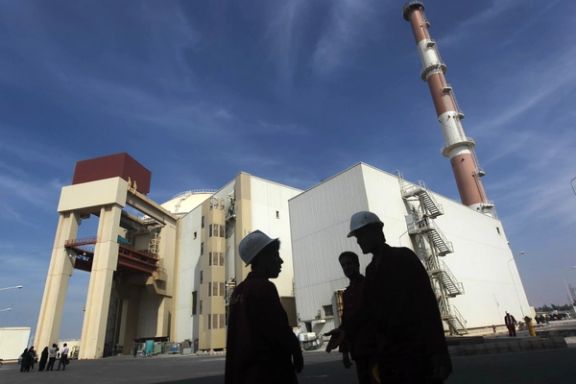
Saudi Arabia plans to use domestically sourced uranium to build up its nuclear power industry, energy minister Prince Abdulaziz bin Salman said on Wednesday.

Saudi Arabia plans to use domestically sourced uranium to build up its nuclear power industry, energy minister Prince Abdulaziz bin Salman said on Wednesday.
He added that recent exploration had shown a diverse portfolio of uranium in the Arab state, the world's top oil exporter.
Saudi Arabia has a nascent nuclear program that it wants to expand to eventually include uranium enrichment, a sensitive area given its role in nuclear weapons. Riyadh has said it wants to use nuclear power to diversify its energy mix.
It is unclear where its ambitions end, since Crown Prince Mohammed bin Salman said in 2018 that the kingdom would develop nuclear weapons if regional rival Iran did.
"The kingdom intends to utilize its national uranium resources, including in joint ventures with willing partners in accordance with international commitments and transparency standards," Abdulaziz bin Salman said.
He told a mining industry conference in Riyadh that this would involve "the entire nuclear fuel cycle which involves the production of yellowcake, low enriched uranium and the manufacturing of nuclear fuel both for our national use and of course for export".
Atomic reactors need uranium enriched to around 5% purity, but the same technology in this process can also be used to enrich the heavy metal to higher, weapons-grade levels.
This issue has been at the heart of Western and regional concerns about Iran's nuclear program and led to the 2015 deal between Tehran and global powers that capped enrichment at 3.67%.
The pact unraveled after then-President Donald Trump exited the deal in 2018, and efforts to salvage the agreement have stalled since September.
Reporting by Reuters
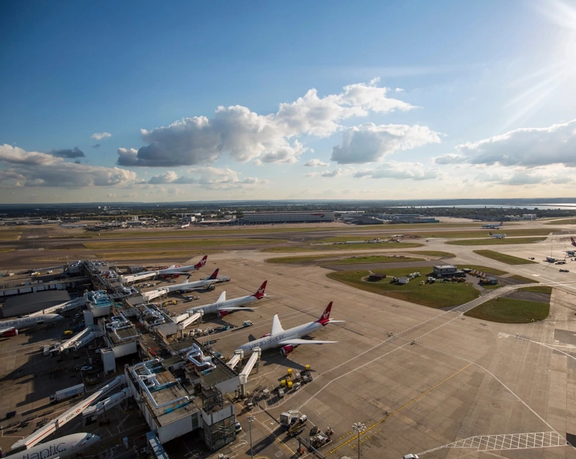
Among accounts of the discovery of a small amount of uranium at London’s Heathrow Airport was a statement that it was heading to a UK-based Iranian business.
While Commander Richard Smith of the Metropolitan Police said the small amount of contaminated material discovered December 29 was “assessed by experts as posing no threat to the public,” British tabloids by January 10 splashed headlines on ‘Terror Alert’ and ‘Nuke Plot.’Some recalled a 2003 warning from then head of British MI5 intelligence service Eliza Manningham-Buller of a possible ‘dirty bomb’ attack by ‘terrorists’ including radioactive material in a conventional explosive device.
While Smith said the police would “continue to follow up on all available lines of inquiry,” he wanted to “reassure the public that the amount of contaminated material was extremely small.” A police spokesman said Border Force officers had detected it with “routine screening” and had summoned the Metropolitan Police’s Counter-Terrorism Command.
The Daily Mirror reported Wednesday that the uranium was in a shipment of scrap metal, with police investigating the possibility of “poor handling.” The Sun reported the “deadly shipment” was “destined for Iranian nationals in the UK, originated in Pakistan and arrived on a slight from Oman.”
While a ‘source’ told the Sun and the Daily Express that “the race is on to trace everyone involved,” various newspapers agreed that nearly two weeks after the shipment was found, no arrests had been made. Most reports mentioned that the metal was found on a passenger plane.
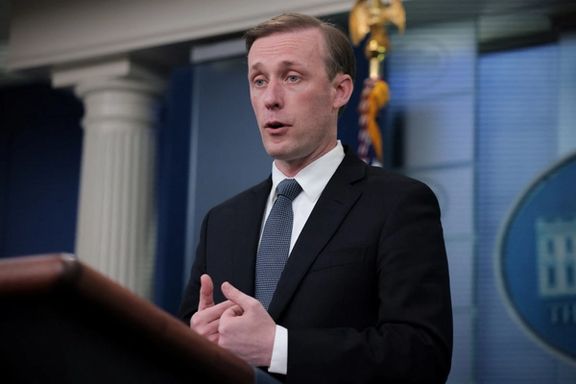
White House National Security Adviser Jake Sullivan and US special envoy for Iran Rob Malley have once again demanded the release of US nationals jailed in Iran.
In a tweet on Tuesday, Sullivan pointed out that it has been "five terrible years" since Morad Tahbaz was detained in Iran.
“We again call on Iran to release immediately Morad and fellow Americans Emad Shargi and Siamak Namazi. Reuniting these Americans with their families is a top priority of this Administration,” he added.
In a similar tweet, Robert Malley also described the “wrongfully” detainment of Morad Tahbaz for five years “too many”.
“We have no higher priority than making sure that Morad and fellow wrongfully detained U.S. citizens Emad Shargi and Siamak Namazi return home and are reunited with their loved ones,” reads his tweet.
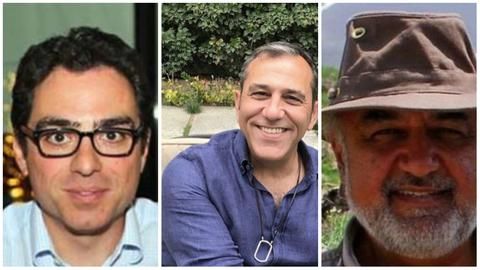
Iran routinely arrests people with Western passports and uses them as bargaining chips.
Tara Tahbaz, the daughter of Iranian-British-American Morad Tahbaz, told CNN on the fifth anniversary of her father's arrest that her family still is calling on the United States and United Kingdom to do whatever they can to bring him home.
Morad Tahbaz, 66, is a British-US-Iranian triple national who was arrested in January 2018 and sentenced to 10 years in prison on “espionage” charges.
Siamak Namazi, is a 50-year-old dual-national businessman, who was arrested and imprisoned in October 2015 on charges of "collaborating with the US government".
Emad Shargi is another Iranian-American businessman who was convicted of espionage without a trial and sentenced to 10 years in prison in 2020.
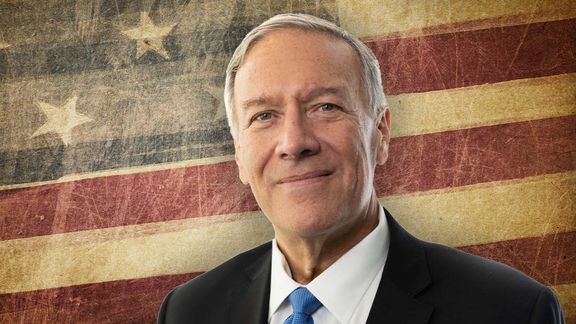
The US government has again extended protection to former Secretary of State Mike Pompeo and his top Iran aide due to persistent threats against them from Iran.
The Associated Press reported that the State Department notified Congress late last week of the extension saying that the threats to Pompeo and Brian Hook remained “serious and credible.” Hook served as the Trump administration’s special envoy for Iran.
Along with Pompeo, Hook was the public face of the US “maximum pressure” campaign against Iran following President Donald Trump’s 2018 decision to withdraw from the Iran nuclear deal known as the JCPOA. Iran has also threatened revenge against former US officials for the US assassination of Iran Revolutionary Guard commander Qassem Soleimani in Baghdad in January 2020.
Another former official with government protection is John Bolton, UN ambassador during President George Bush and National Security Advisor during Trump. The Justice Department revealed in August that an operative of Iran’s Revolutionary Guard tried to hire a hitman in the US to kill Bolton. DoJ said Shahram Poursafi, also known as Mehdi Rezayi, 45, had attempted to pay “individuals in the United States” $300,000 to carry out the killing, “likely in retaliation for the January 2020 death of Iran’s Islamic Revolutionary Guard Corps – Qods Force (IRGC-QF) commander Qasem Soleimani.”
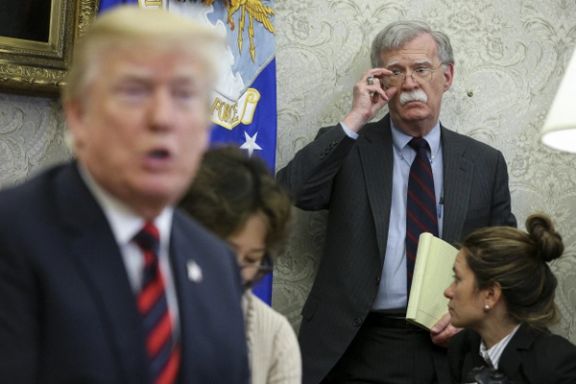
Bolton told Iran International Television that he was not surprised as the indictment was unsealed because he was kept informed “in general terms until late in 2021 when it was determined I would again get secret service protection.” But he criticized the Biden administration for not doing enough to stop the Iranian threat against former US officials.
The notifications, obtained by The Associated Press, were signed by Acting Deputy Secretary of State John Bass.
“I hereby determine that the specific threat with respect to former Secretary of State Michael Pompeo persists,” Bass wrote. He used identical language to refer to the threat against Hook.
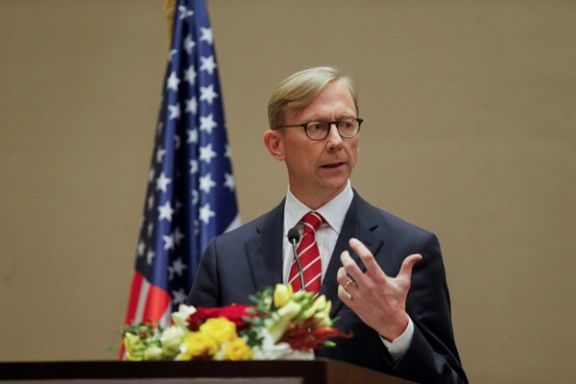
The AP reported in March 2022 that the State Department was paying more than $2 million per month to provide 24-hour security to Pompeo and Hook. The latest determinations did not give a dollar amount for the protection.
Even as the Biden administration has made those determinations and spent money for Pompeo and Hook’s protection, it has continued to press ahead with indirect talks with Iran aimed at salvaging the 2015 Iran nuclear deal that Trump withdrew from in 2018.
Those talks have been stalled for many months now and the administration has been saying since October that its focus has shifted from the negotiations to the protest movement in Iran.
In the meantime, Iran has launched a major crackdown on antigovernment protests sparked by the death of a woman in custody who was accused of violating a law requiring women to wear headscarves in public.
The State Department did not specifically mentioned Iran as the source of the threats, but Iranian officials have long singled our Pompeo, Hook and Bolton for leading the Trump administration’s policy against Iran, including designating the Revolutionary Guard Corps a “foreign terrorist organization,” subjecting it to tough economic sanctions and orchestrating the Soleimani assassination.
On the third anniversary of the Soleimani killing last week, Iranian officials renewed their threats to take revenge. Iran’s president Ebrahim Raisi in a speech on Tuesday addressed the US saying, “We have not forgotten martyr Soleimani’s blood and will never forget. They [Americans] should know that revenge for Soleimani is certain and his killers…will not have any peaceful sleep.”

Iranian media say a detained Belgian national detained in 2022 has been sentenced to 40 years in prison by the judiciary of the Islamic Republic.
According to Mizan news website, affiliated with the judiciary, Olivier Vandecasteele in addition to his long prison term must get 74 lashes for alleged “spying and cooperation with the United States, money laundering and currency smuggling.”
The Belgian aid worker had earlier denied the charges, but on Tuesday he was handed four jail terms, as well as sentences of 74 lashes and a fine.
Belgium is summoning the Iranian ambassador, Foreign Affairs Minister Hadja Lahbib said Tuesday in a statement.
Brussels announced in July that Vandecasteele, a former employee of the Norwegian Refugee Council, had been arrested in the Islamic Republic.
Based on Iranian law, he would be eligible to be freed after serving 12.5 years.
Vandecasteele has the right to appeal the verdict within 20 days, ISNA news agency reported.
He worked in Iran for humanitarian organizations for more than six years and left the country. Later, he was lured back by “a girlfriend” and was detained in February 2022.
A spokesman for Vandecasteele’s family announced in December that he has been sentenced to 28 years in prison.
Belgium and Vandecasteele’s family believe he is innocent and a victim of hostage taking by the Iranian regime. They say Tehran intends to force Brussels to release Iranian diplomat Assadollah Assadi who was sentenced to 20 years in prison in Belgium in 2021.
Asadi was accused of plotting a bomb attack on a meeting of an Iranian opposition group outside Paris.

The United States’ proclaimed concentration on Ukraine and China at the expense of the Middle East has prompted criticism from various directions.
For several months, officials in the administration of President Joe Biden have stressed that US foreign-policy priorities, reflected in staff time, have been the Russia-Ukraine conflict and calibrating policy towards the rise of China.
With the Middle East, leading US officials have said for several months that efforts to restore the 2015 Iran nuclear deal are no longer a ‘focus,’ that the current ceasefire in Yemen is sustainable, and that the US can both co-operate with the new Israeli government of Benjamin Netanyahu and keep its commitment to a ‘two state solution’ for Palestine-Israel.
Ned Price, the State Department Spokesman, was asked at his Monday press briefing about Biden’s campaign-trail statement in November, which emerged December, that the Iran nuclear agreement (the JCPOA, Joint Comprehensive Plan of Action) was “dead.” Price insisted that Biden “did not say diplomacy is dead, not at all.”
Price was then asked about a “hypothetical” case of Iran accepting US conditions for JCPOA restoration. The spokesman said that as long as Tehran lacked “any real interest in diplomacy,” then Washington would “continue to keep our focus on supporting the Iranian people...[and] Iran’s security assistance to Russia.”
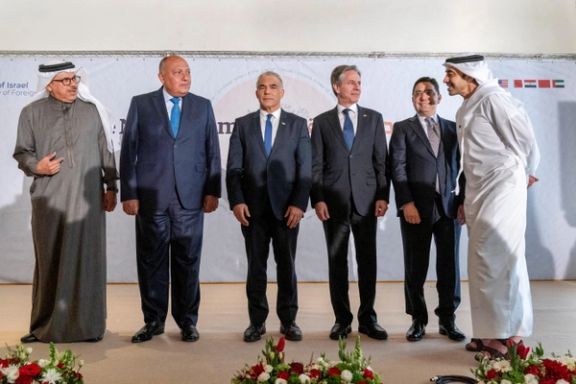
Since great-power talks to revive the JCPOA floundered in late summer with Washington and Tehran unable to bridge gaps, the US has levied additional sanctions on Iran and those trading with Iran, while Tehran has continued a nuclear program that since 2019 has exceeded JCPOA limits. The US sanctions have come under various rubrics – violation of the ‘maximum pressure’ sanctions introduced by the US in 2018 on leaving the JCPOA, ‘human rights,’ and Iran’s supply of military drones to Russia.
Iran nuclear snapback – a ‘decision’ for Europe
Price said Monday that any decision over snapback – a JCPOA mechanism that could see multilateral sanctions on Iran snap back if it violated the 2015 agreement – was a “decision for our European partners,” referring to the trio of France, Germany and the United Kingdom. All three take the US view that Iran’s supply of drones to Russia violates a clause in United Nations Security Council Resolution 2231, which endorsed the JCPOA.
But the challenge of a new right-wing government in Israel seems more pressing. Both Secretary of State Antony Biden and National Security Adviser Jake Sullivan are due in Israel this month, with US officials stressing a common commitment to prevent Iran acquiring a nuclear weapon.
This, along with an emphasis on the potential of Israel’s US-sponsored 2020 ‘normalization’ agreements with four Arab states, sits uneasily with US concern that Benjamin Netanyahu’s government is already taking steps likely to enflame the volatile situation in the occupied West Bank. Price conceded at his Monday press briefing that normalization agreements were “not a substitute for Israeli-Palestinian peace.”
Under a headline dubbed ‘The Perils of Ignoring the Middle East,’ Walter Russell Mead, professor at Bard College, argued in his Wall Street Journal column Tuesday that a “15-year decline in America’s regional influence” could be reversed by “a resolute and effective US policy to disrupt Iran’s ability to threaten its Iran neighbors…[including] if all else fails…military action to block Tehran’s nuclear program…[and] put the US back at the center of the Middle Eastern order.”
Read, a staunch supporter of the US interventions in Iraq and Syria but not Libya, argued that Biden’s current approach rested on an “impotence” that was “more expensive in the long run.”